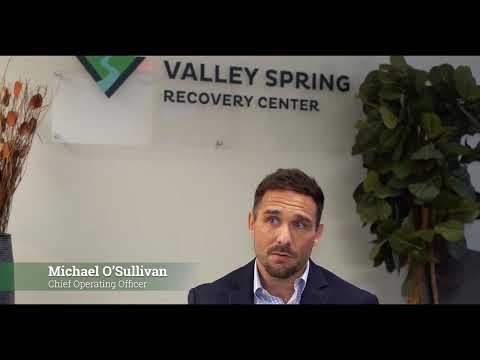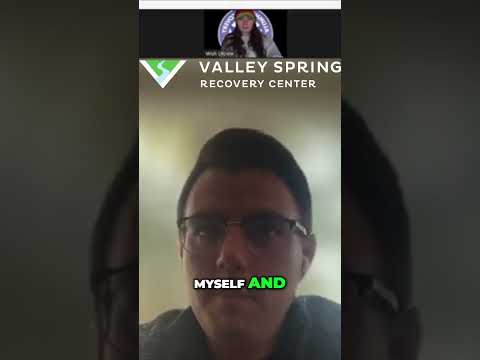Category: Holistic Addiction Recovery
Holistic Approaches to Addiction Recovery
Holistic Addiction Recovery: A Comprehensive Approach to Transforming Lives
Introduction
In a world where mental health and substance abuse issues are on the rise, holistic addiction recovery has emerged as a powerful and transformative approach. This innovative concept goes beyond traditional treatments, embracing a multidimensional perspective to address the complex nature of addiction. Holistic Addiction Recovery (HAR) aims to heal the mind, body, and spirit, recognizing that these interconnected aspects are integral to an individual’s overall well-being.
This article delves into the depths of HAR, exploring its principles, global impact, economic implications, technological innovations, policy framework, challenges, and success stories. By understanding this holistic paradigm, we can appreciate its significance in transforming lives and contributing to a healthier world.
Understanding Holistic Addiction Recovery
Definition: Holistic Addiction Recovery is a comprehensive treatment methodology that focuses on the entire person—their physical, emotional, mental, and spiritual well-being—to achieve long-term recovery from addiction. It goes beyond symptom reduction, aiming for holistic healing and personal growth.
Core Components:
- Mindfulness and Meditation: Practicing mindfulness techniques and meditation helps individuals cultivate awareness of their thoughts, emotions, and behaviors without judgment. This self-awareness is crucial in identifying triggers and developing healthier coping strategies.
- Psychotherapy: Individual and group therapy sessions play a pivotal role in HAR. Therapies such as Cognitive Behavioral Therapy (CBT), Dialectical Behavior Therapy (DBT), and Motivational Interviewing (MI) empower individuals to understand their addiction, process underlying trauma, and build resilience.
- Physical Health Care: This includes addressing medical needs, managing withdrawal symptoms, and promoting overall physical well-being. It may involve nutritional counseling, exercise programs, and holistic healing modalities like acupuncture or yoga.
- Spiritual Practices: Spirituality is a vital aspect of HAR, encouraging individuals to connect with their higher power, find meaning, and cultivate a sense of purpose. This can include meditation, prayer, nature walks, or engaging in creative arts.
- Support Groups: Peer support groups foster a sense of community, understanding, and accountability. They provide a safe space for individuals in recovery to share experiences, offer encouragement, and learn from one another.
- Lifestyle Changes: HAR emphasizes the importance of adopting healthier lifestyles, including stress management techniques, time management skills, and building a supportive social network.
Historical Context: The roots of holistic addiction recovery can be traced back to ancient traditions that emphasized mind-body connections. Indigenous cultures worldwide have long practiced healing rituals focusing on whole-person wellness. However, its modern form emerged in the late 20th century as a response to the limitations of traditional treatment models. The 1980s and 1990s saw an increase in research and popularity, with growing recognition of the need for personalized, comprehensive care.
Global Impact and Trends
Holistic Addiction Recovery has garnered international attention, with many countries adopting elements of this approach to address their substance abuse and mental health crises. The World Health Organization (WHO) has acknowledged the importance of integrating traditional and complementary medicine, including holistic practices, into healthcare systems worldwide.
Regional Variations:
- North America: The United States and Canada have seen a significant rise in HAR centers, with many insurance providers now covering holistic treatments. California and New York are known for their innovative recovery programs combining therapy, yoga, and meditation.
- Europe: European countries like the UK, Germany, and Sweden have embraced HAR, often integrating it into mainstream healthcare. The European Association for the Treatment of Addiction (EATA) promotes evidence-based practices, including holistic methods.
- Asia: Countries like Australia, Japan, and South Korea are investing in HAR research and treatment centers. Traditional Eastern practices, such as mindfulness and acupuncture, are increasingly incorporated into modern addiction recovery programs.
- Global Trends: The COVID-19 pandemic has accelerated the adoption of remote and digital forms of holistic therapy, making recovery support more accessible worldwide. Telehealth services enable individuals to access specialists and support groups from remote locations.
Economic Considerations
The economic landscape surrounding holistic addiction recovery is complex and multifaceted:
| Aspect | Description |
|---|---|
| Market Size | The global addiction treatment market is substantial, projected to reach USD 147.2 billion by 2027, with a significant portion dedicated to holistic approaches. |
| Investment Patterns | Private investors and venture capital firms are increasingly backing HAR startups, reflecting the industry’s potential. Governments worldwide are also allocating funds for holistic recovery programs as part of their healthcare budgets. |
| Cost-Effectiveness | Studies suggest that holistic addiction recovery can lead to long-term cost savings for healthcare systems due to reduced relapse rates and improved overall health outcomes. For individuals, out-of-pocket expenses vary, with many centers offering sliding scale fees based on income. |
| Employer Involvement | Many companies are recognizing the impact of employee substance abuse and mental health issues. They are encouraging holistic recovery programs as part of their employee assistance programs (EAPs), contributing to a more engaged and productive workforce. |
Technological Advancements
Technology plays a transformative role in modernizing holistic addiction recovery:
- Mobile Applications: Apps designed for recovery support offer personalized meditation, mindfulness exercises, and tracking tools for mood and cravings. Examples include Headspace, Calm, and Sober Grid.
- Virtual Reality (VR) Therapy: VR is used to expose individuals to addictive triggers in a controlled environment, helping them learn healthy coping mechanisms. It also aids in phobia and trauma therapy.
- Wearable Devices: Fitness trackers and smartwatches can monitor physical activity, sleep patterns, and stress levels, providing valuable data for recovery coaches and therapists.
- Online Support Communities: Social media platforms and online forums connect individuals in recovery, fostering peer support and accountability.
- Artificial Intelligence (AI): AI algorithms analyze vast amounts of data to personalize treatment plans, predict relapse risks, and provide 24/7 support through chatbots or virtual assistants.
Policy and Regulation
The regulatory landscape for holistic addiction recovery varies across regions:
- Licensing and Accreditation: Many countries require HAR facilities and practitioners to be licensed and accredited to ensure quality care. These standards cover therapy types, staff qualifications, and treatment protocols.
- Insurance Coverage: In many regions, insurance providers are expanding coverage for holistic treatments, making them more accessible. Policies differ regarding what constitutes ‘holistic’ care, impacting reimbursement rates.
- Legal Status of Substances: The legal status of substances like cannabis and psilocybin (magic mushrooms) influences the availability and legality of holistic treatments involving these compounds.
- Research Funding: Governments and private foundations invest in research to support evidence-based practices within HAR. This funding drives innovation and improves treatment outcomes.
Challenges and Criticisms
Despite its growing popularity, holistic addiction recovery faces several challenges:
- Stigma and Misunderstanding: Stigma surrounding addiction and alternative treatments often deters individuals from seeking help. Educating the public about the benefits of HAR is crucial to reducing this barrier.
- Access and Affordability: Ensuring equal access to high-quality holistic recovery services remains a challenge, especially in underserved communities. Financial barriers, including insurance coverage issues, can limit access for many.
- Regulation and Standardization: Inconsistent regulations across regions create challenges for practitioners and patients. Standardizing treatment protocols and quality measures is essential for maintaining consistent care.
- Evidence Base: While many HAR techniques have anecdotal evidence supporting their effectiveness, robust scientific studies are still needed to validate certain practices. Rigorous research is required to address this criticism.
Strategies to Overcome Challenges:
- Develop public awareness campaigns and educational initiatives to dispel myths and promote understanding of HAR.
- Advocate for insurance coverage expansions and financial aid programs to make holistic treatment more accessible.
- Collaborate internationally to establish uniform regulatory frameworks and quality standards.
- Invest in research to strengthen the evidence base for various HAR modalities.
Case Studies: Real-World Success Stories
1. The Haven: A Holistic Recovery Retreat (USA)
The Haven is a luxury holistic recovery retreat located in the mountains of Colorado, USA. It offers a 30-day immersive program combining CBT, yoga, meditation, and adventure therapy. The case study highlights its success in treating co-occurring disorders, with a 75% completion rate and positive feedback from participants. The Haven’s comprehensive approach addresses physical, mental, and spiritual needs, fostering long-term recovery.
2. Soma: Digital Holistic Recovery Platform (UK)
Soma is a digital platform providing personalized holistic recovery plans for individuals worldwide. It offers tailored meditation, mindfulness, and fitness programs, along with access to online support communities. A study showed a 30% reduction in substance use among users after three months, indicating the effectiveness of this digital approach. Soma’s accessibility and flexibility cater to modern lifestyles.
3. Aboriginal Healing Centers (Canada)
Canada’s Aboriginal Healing Centers have successfully implemented traditional indigenous healing practices alongside Western medicine. These centers address cultural trauma and intergenerational effects of colonization. By integrating ancient healing rituals, storytelling, and connection with nature, these centers achieve remarkable recovery rates while respecting cultural identities.
Future Prospects: Emerging Trends and Growth Areas
The future of holistic addiction recovery looks promising, with several emerging trends shaping its evolution:
- Personalized Medicine: Advanced technology enables highly individualized treatment plans tailored to each person’s unique needs, preferences, and genetic makeup.
- Integration with Primary Care: There is a growing trend to integrate HAR into primary healthcare systems, making it more accessible and reducing the stigma associated with addiction treatment.
- Digital Health Solutions: Remote therapy sessions, mobile apps, and online support communities will continue to grow, offering flexibility and convenience for individuals in recovery.
- Mind-Body Practices on Mainstream: Yoga, meditation, and mindfulness are becoming mainstream practices, increasing awareness and acceptance of holistic approaches to mental health and well-being.
- Research-Informed Practice: As research expands, evidence-based HAR protocols will become more prevalent, ensuring treatment effectiveness.
- Global Collaboration: International partnerships and knowledge-sharing initiatives will enhance the global understanding and implementation of successful holistic recovery models.
Conclusion: Transforming Lives, One Step at a Time
Holistic Addiction Recovery represents a profound shift in how we understand and address addiction. By embracing the interconnectedness of the mind, body, and spirit, this approach offers individuals a path to lasting recovery and personal growth. As global awareness and research continue to grow, HAR will undoubtedly play a pivotal role in transforming lives and building more resilient communities.
FAQ Section: Addressing Common Concerns
Q: Is holistic addiction recovery effective for everyone?
A: Like any treatment approach, HAR is not a one-size-fits-all solution. Its effectiveness depends on individual needs, commitment to the process, and access to quality programs. However, it has shown promising results for many, especially when combined with traditional treatments.
Q: How do I choose a holistic recovery program?
A: Consider factors like accreditation, staff qualifications, program duration, cost, and personal preferences. Research reputable organizations, read success stories, and trust your instincts during initial consultations.
Q: Can my insurance cover holistic addiction recovery?
A: Many insurance providers are expanding coverage for HAR. Check with your insurer or contact them to inquire about specific policies and coverage limits for holistic treatments.
Q: Is there scientific evidence supporting holistic practices?
A: While some holistic techniques lack extensive scientific research, many have anecdotal evidence and emerging studies supporting their effectiveness. The field is rapidly growing, and ongoing research will provide more robust evidence over time.
Q: Can I practice mindfulness and meditation on my own?
A: Absolutely! Mindfulness and meditation are accessible practices that can be incorporated into daily life. There are numerous apps and online resources available to guide beginners and support individuals in their personal growth journeys.
Jan 30th AA Daily Reflection: FREEDOM FROM… FREEDOM TO | Alcoholics Anonymous Meditation
Jan 31st AA Daily Reflection: OUR COMMON WELFARE COMES FIRST | Alcoholics Anonymous Meditation
What It’s Like To Admit To Drug and Alcohol Rehab ~ Full Process Explained!
A Client Testimonial from Jordan For Valley Spring Recovery Center! #valleyspringrecovery
CEO Brian Cellary of Valley Spring Recovery Center | The Power of Helping Others & Personal Journey
James Sands Director of BD Promoted to VP at The Valley Spring Recovery Center
Holistic Addiction Recovery: A Comprehensive Approach for Lasting Wellness

Holistic addiction recovery addresses substance use disorders comprehensively by integrating various interventions including medical treatment, psychological therapy, social support, and spiritual healing. This approach recognizes the influence of biologi…….
Holistic Healing in Addiction Recovery: A Multidimensional Approach

Holistic addiction recovery is an all-encompassing approach that addresses substance use disorders through medical treatment, psychological therapy, and social support. It aims to repair the biological disturbances by using medication-assisted therapy for…….
Holistic Pathways to Addiction Recovery: Integrating Mental Health, Nutrition, Mindfulness, and Community Support

Holistic addiction recovery is a comprehensive approach that encompasses physical health, mental well-being, emotional equilibrium, social connections, and spiritual alignment to effectively treat substance use disorders. This method goes beyond tradition…….







